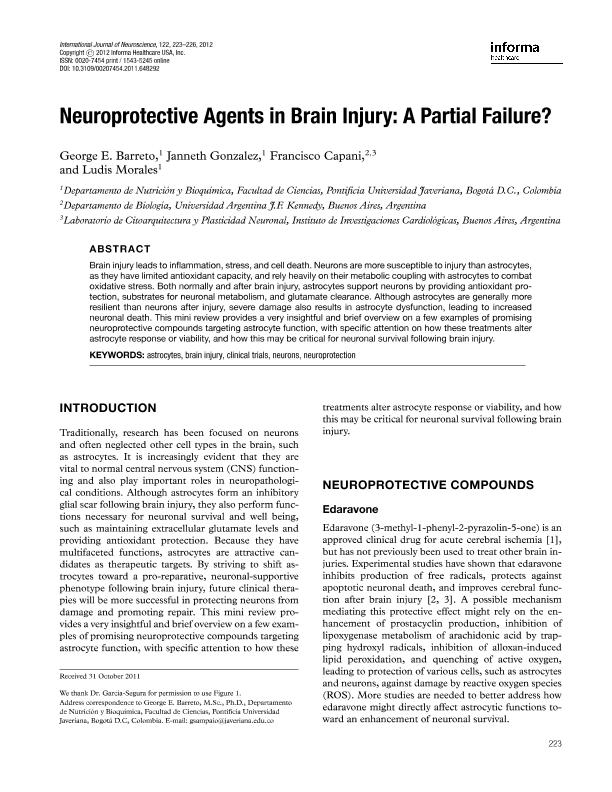Artículo
Neuroprotective agents in brain injury: A partial failure?
Fecha de publicación:
05/2012
Editorial:
Taylor & Francis Ltd
Revista:
The International Journal Of Neuroscience.
ISSN:
0020-7454
Idioma:
Inglés
Tipo de recurso:
Artículo publicado
Clasificación temática:
Resumen
Brain injury leads to inflammation, stress, and cell death. Neurons are more susceptible to injury than astrocytes, as they have limited antioxidant capacity, and rely heavily on their metabolic coupling with astrocytes to combat oxidative stress. Both normally and after brain injury, astrocytes support neurons by providing antioxidant protection, substrates for neuronal metabolism, and glutamate clearance. Although astrocytes are generally more resilient than neurons after injury, severe damage also results in astrocyte dysfunction, leading to increased neuronal death. This mini review provides a very insightful and brief overview on a few examples of promising neuroprotective compounds targeting astrocyte function, with specific attention on how these treatments alter astrocyte response or viability, and how this may be critical for neuronal survival following brain injury.
Palabras clave:
Astrocytes
,
Brain Injury
,
Clinical Trials
,
Neurons
,
Neuroprotection
Archivos asociados
Licencia
Identificadores
Colecciones
Articulos(ININCA)
Articulos de INST.DE INVEST.CARDIOLOGICAS (I)
Articulos de INST.DE INVEST.CARDIOLOGICAS (I)
Citación
Barreto, George E.; Gonzalez Santos, Janneth; Capani, Francisco; Morales, Ludis; Neuroprotective agents in brain injury: A partial failure?; Taylor & Francis Ltd; The International Journal Of Neuroscience.; 122; 5; 5-2012; 223-226
Compartir
Altmétricas




